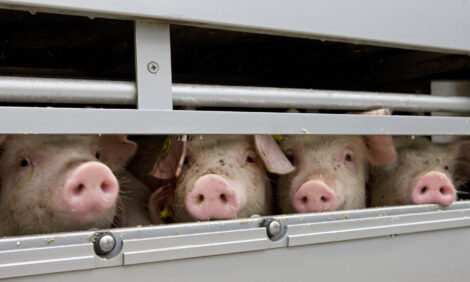



Zamboanga Pigs Die of Swine Flu Virus
PHILIPPINES - The death of a dozen pigs last week in barangay Vitali, 72 kilometers east of this city, was caused by mainly swine flu and not the Ebola Reston virus as earlier feared by people in the city.This were the findings of a team of experts from the Department of Agriculture (DA), city veterinarian and city health offices that went to Vitali and conducted an on-site investigation, according to Filipino news agency BusinessMirror.
Apart from swine flu, other possible causes of the death were Porcine Reproductive and Respiratory Syndrome (PRRS), Classical Swine Fever, Actinobacillus Pleuropneumoniae, Salmonellosism Enzootic and Heat Stroke, said Dr Mario Ariola, chief of the city veterinarian office.
DA regional director Oscar Parawan and veterinarian Dr. Marie France Jalao, of the DA regional office that was part of the team, corroborated Ariola’s pronouncement.
Mr Parawan said swine flu is a common disease in hogs that requires proper medication to prevent complications from bacteria that lead to the death of the pigs. He said they also discovered that water in Vitali where the pigs died contains E. coli that can complicate infection when mixed with food eaten by hogs.
City health officer Dr Rodel Agbulos also disclosed that the five-year-old child who died at same time as the pigs suffered severe dehydration caused by infectious diarrhea, and not from eating pork infected by the virus as earlier feared by people in the city.
The team also found out that the owner of the swine that died had sold the meat to the community and this caused diarrhea and other symptoms of one family and eventually led to the death of one child.
Dr Agbulos said other findings showed that the water source of the family has high E. coli content that might have also led to diarrhea and severe dehydration.
Dr Ariola said the pigs that died belong to three households. The pigs were not vaccinated and consequently exhibited nasal discharges, fever, sudden weakness and death within two days.
Seven of the 12 pigs that died are piglets and five sows of which three were pregnant, according to Dr Ariola.
The team has come up with recommendations to double-check these findings since the members have not been able to come up with a definitive diagnosis.
The recommendations include continuous close monitoring of the situation in the affected areas; collection of blood and tissue samples of sick pigs; information and education campaign on swine management; advisory on meat-safety consumption; and intensified meat-inspection measures.
“We cannot come up with a definitive diagnosis since we were not able to observe any sick pigs in the visited areas and necropsy was not performed,“ Dr Ariola disclosed.
Mr Parawan said they expect to receive any time soon the results of analysis of blood samples taken from the pigs in Vitali and sent to Manila for laboratory tests.
Further Reading
| - | Find out more information on the diseases mentioned here by clicking here. |








